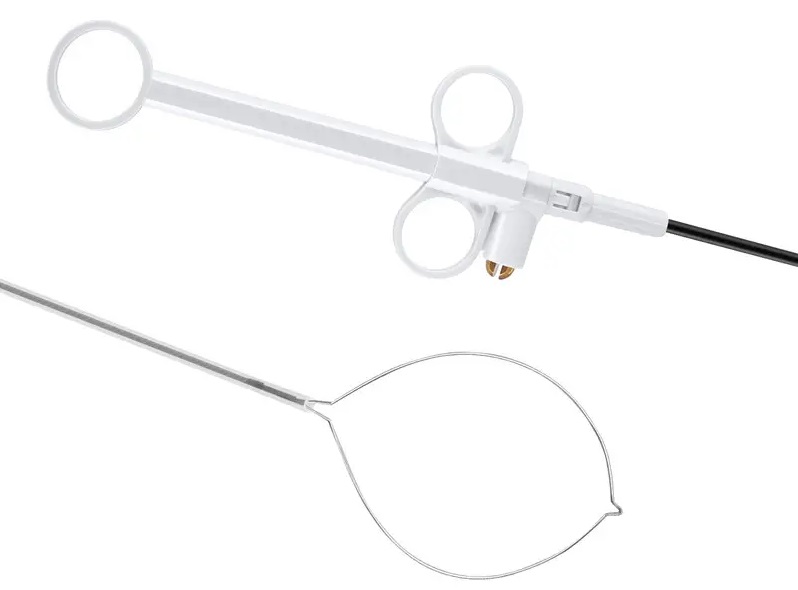Hurry Up…Year-End Mega Sale Is Live Now….!

Ligation Devices Market Overview
The ligation devices market is projected to grow steadily at a CAGR of 6–7% through 2028, supported by several structural and demographic factors. Rising age-related health issues, the increasing demand for minimally invasive surgical procedures, and the growing prevalence of cardiovascular, gastrointestinal, and other chronic medical conditions continue to expand the use of these devices.
Higher healthcare spending worldwide and ongoing technological advancements are also accelerating market development, making ligation devices essential tools in modern surgical practices.
Ligation devices serve a critical purpose in ensuring that blood vessels or ducts are properly sealed during medical procedures, significantly reducing the risk of bleeding and improving patient safety. Surgeons choose devices based on the procedure and the size of the vessel being treated. Larger vessels typically require clip-based ligation, whereas smaller ones are more suited to ligation bands. Alternatives such as ligating loops, staples, sutures, and energy-based devices are also used depending on surgical objectives and tissue type.
Electrocoagulation devices use controlled electrical energy to seal very small arteries and veins
Ultrasonic devices rely on ultrasonic waves to vibrate and seal larger blood vessels effectively
Staples are used to close incisions, connect tissues, and in some cases act as vessel-ligating tools
Suture ligation remains a traditional method for tying off vessels, though it is less commonly used today due to time and skill requirements
Precision in Progress: Growth Rooted in Minimally Invasive Surgery and Innovation
The widespread adoption of minimally invasive surgery (MIS) is significantly driving the demand for ligation devices. MIS procedures rely heavily on precise vessel management within confined surgical fields, making advanced ligation tools indispensable. Patients increasingly prefer minimally invasive options due to faster recovery times, reduced complications, and shorter hospital stays, which has prompted healthcare systems to invest more in high-performance surgical technologies.
Modern ligation devices are evolving rapidly, incorporating digital features, improved ergonomics, and enhanced sealing capabilities. This innovation surge is strengthening their role in surgical workflows. The evolution of powered staplers, advanced vessel sealers, and multifunctional tools is making procedures safer, faster, and more efficient.
In June 2022, Ethicon introduced the ECHELON 3000 Stapler in the U.S., offering one-handed powered articulation and enhanced usability
In May 2021, CooperSurgical expanded its portfolio by acquiring obp Medical, gaining access to a broad range of single-use illuminated surgical devices
Beyond Boundaries: Ligation Devices Across Cardiovascular, Gastrointestinal, and Gynecological Surgeries
The rising global burden of chronic diseases—including cardiovascular disorders, digestive tract diseases, and gynecological conditions—is contributing to the increased use of ligation devices. These tools are becoming integral components in laparoscopic, endoscopic, open, and robotic surgeries performed to treat these conditions.
Continuous improvements in device design—such as stronger seal integrity, improved jaw geometry, enhanced energy-based mechanisms, and better material durability—have improved surgical accuracy and outcomes. These advancements are expanding adoption across hospitals, ambulatory surgical centers, and specialty clinics.
In April 2022, Ethicon launched the ENSEAL X1 Straight Jaw Tissue Sealer, a bipolar energy device that cuts, seals, and captures more tissue per bite than competing products
Increasing healthcare expenditures, especially in developing nations prioritizing advanced surgical technologies, continue to reinforce market momentum. Ageing populations are also significantly influencing demand, as elderly individuals have a higher incidence of conditions requiring surgical intervention. Additionally, improving hospital infrastructure in emerging markets is driving wider penetration of modern ligation systems.
Competitive Landscape
The ligation devices market includes a mix of global leaders and specialized manufacturers. Key players include:
• Medtronic
• Teleflex
• Johnson & Johnson Meditech
• Olympus
• Cooper Surgical
• ConMed
• B. Braun
• Grena Think Medical
• Applied Medical
Growth Strategies: Organic and Inorganic Expansion to Strengthen Market Presence
Companies in this sector continue to rely on a combination of new product development, strategic acquisitions, and partnerships to expand their geographical footprint and strengthen their product portfolios. With technological differentiation becoming increasingly important, manufacturers are prioritizing research, innovation, and integration of digital capabilities into ligation solutions.
In November 2023, CooperCompanies finalized its acquisition of selected assets from Cook Medical, expanding into obstetrics, Doppler monitoring, and gynecological surgery with minimally invasive tools such as the Bakri Postpartum Balloon
In August 2022, Teleflex entered into an agreement to acquire Standard Bariatrics, adding its Titan SGS powered stapling technology—known for delivering a 23-centimeter continuous staple line—to its offerings, significantly enhancing capabilities in bariatric surgery
In December 2020, ConMed partnered with PhyzioTech to co-develop and commercialize minimally invasive surgical tools for pelvic floor treatments, broadening its presence in specialized surgical markets
Future Outlook
The ligation devices market is set for continued growth as surgical practices evolve and the global incidence of age-related and chronic diseases rises. Increased adoption of endoscopic and minimally invasive procedures will drive demand for more advanced, energy-efficient, and precision-focused ligation tools. Manufacturers are expected to continue pursuing aggressive R&D initiatives, alongside strategic mergers and acquisitions, to enhance product performance and cater to emerging surgical needs.
With expanding healthcare infrastructure in developing regions, steady technological progress, and rising patient expectations for minimally invasive options, the ligation devices market is poised to maintain strong momentum in the years ahead.
Key Request a free sample copy or view report summary: https://meditechinsights.com/ligation-devices-market/request-sample/
About Medi-Tech Insights
Medi-Tech Insights is a healthcare-focused business research & insights firm. Our clients include Fortune 500 companies, blue-chip investors & hyper-growth start-ups. We have completed 100+ projects in Digital Health, Healthcare IT, Medical Technology, Medical Devices & Pharma Services in the areas of market assessments, due diligence, competitive intelligence, market sizing and forecasting, pricing analysis & go-to-market strategy. Our methodology includes rigorous secondary research combined with deep-dive interviews with industry-leading CXO, VPs, and key demand/supply side decision-makers.